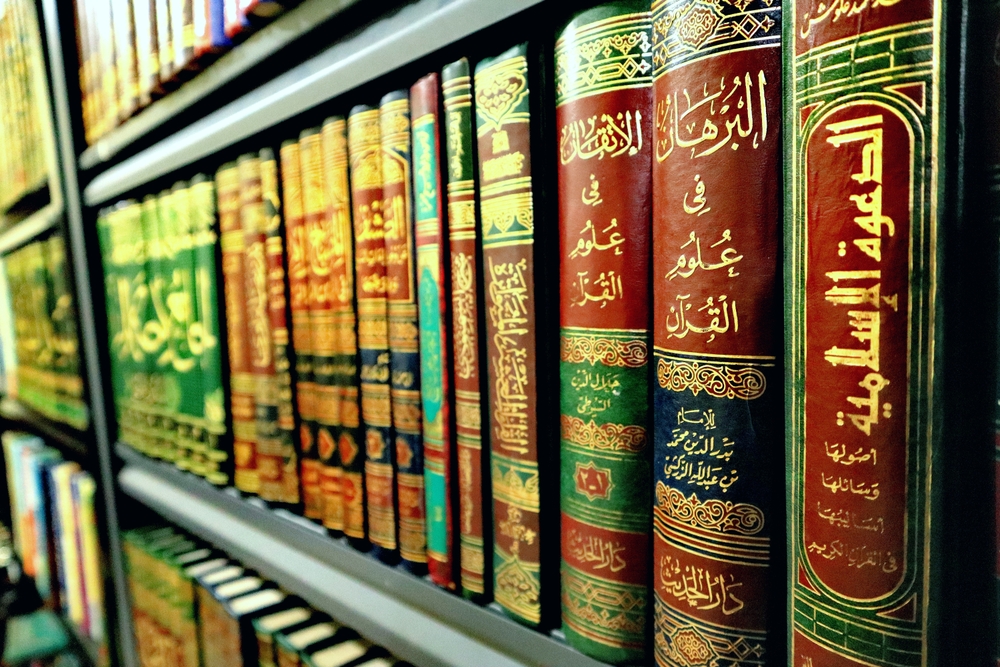How Are Prophetic Narrations Used to Derive Sacred Law?
Answered by Shaykh Mohammad Badhib
Question
How are Prophetic Narrations used to derive Sacred Law?
Answer
In the name of Allah (Most High). All praise is due to Allah. Blessings and peace be upon our master Muhammad, the Messenger of Allah, his family, companions, and those who follow him.
The Prophetic Sunna in Islamic Legislation
It is a matter of scholarly consensus that the Prophetic Sunna is Islam’s second source of legislation.
The Sunna encompasses the sayings, actions, and characteristics of the Messenger of Allah (blessings and peace be upon him) – both in his manners and physical attributes.
Allah Most High says: “…Whatever the Messenger gives you, take it. And whatever he forbids you from, leave it. And fear Allah. Surely Allah is severe in punishment.” [Quran, 59:7]
Hadith Authenticity
The Prophetic Sunna relies on the narrations of the Messenger of Allah (blessings and peace be upon him), which come in varying degrees of authenticity.
These Hadith narrations include Mutawatir (Mass Transmitted), which are very few, as well as the Sahih (Authentic), Hasan (Good), and Da‘if (Weak) narrations. There are also fabricated (Mawdu‘) and forged narrations, which are categorically false and should not be narrated unless there is a need to warn against them or clarify their status.
It is well-known that Islamic legal rulings are established and accepted based only on authentic (Sahih) or good (Hasan) Hadith. Weak (Da‘if) Hadith are not considered sufficient evidence for legal rulings. This is the mainstream practice.
Therefore, when someone inquires about weak Hadith in some Fiqh books, it is a valid question and demonstrates vigilance and attentiveness.
Reasons for Including Weak Hadith
The answer to this question lies within the context of presenting the reasons these weak Hadith are found in Fiqh books. These reasons stem from in-depth and extensive research conducted by scholars of Sacred Law. We can summarize these reasons as follows:
One of these reasons is that weak hadiths come in various forms, not a single type. Among them is the “Mursal” hadith. Some jurists accepted it unconditionally, while others rejected it entirely. Some scholars, like Imam Shafi‘i (Allah have mercy on him), found a middle ground and accepted certain “Mursal” narrations, particularly those reported by specific Tabi‘in (successors of the companions) over others.
Another reason is that when a jurist mentions a weak hadith, it may be accompanied by other indicators. For example, they might mention it for the sake of “Isti’nath” (preference) without using it as evidence or because it’s well-known among the people. Additionally, the weak Hadith might become practically accepted among a particular community, receive support from a Companion’s fatwa, or be used as a basis for analogy (Qiyas) supported by authentic evidence And other reasons that some jurists rely on.
Another important aspect of the issue is that there should be no contradicting evidence from the Quran, authentic Hadiths, or consensus (Ijma) against the weak Hadith. Another consideration is that the weakness of the Hadith should not be extreme, where it falls into the category of “Munkar” (unacceptable), “Wahy” (fabricated), or “Mawdu” (forged).
Furthermore, it’s important that a jurist (faqih) should have expertise in Hadith and be capable of distinguishing between authentic and weak Hadith. If a jurist lacks this knowledge, they may mistakenly use a weak Hadith, thinking it is valid for legal reasoning. Alternatively, they might rely on the opinion of a previous jurist who cited a weak Hadith in their book, following that opinion without a strong understanding of the Hadith’s authenticity.
Expertise and Understanding
Hence, the presence of weak Hadith in some scholars’ works does not imply that we should completely disregard them or discredit the authors.
Instead, we must respect and honor the early scholars who have provided beneficial works and use them to the best of our abilities. We should continue seeking knowledge, specializing in areas of interest, and familiarizing ourselves with the methodologies of these scholars. This way, we avoid rejecting what we do not fully understand, and we can acknowledge the contributions of these scholars without diminishing their status.
Those who seek more knowledge and understanding can refer to specialized books and research works on this subject. May Allah Most High guide and grant success to all.
Footnotes:
For further reference, see Al-‘Aydarus, Zain bin Muhammad, Weak Hadiths and Their Impact on Legal Rulings; Al-Khudair, Abdul Karim bin Abdullah, Weak Hadiths, and Their Applicability; Al-Uthaim, Abdul Aziz bin Abdul Rahman, Authenticating the Practice of Acting upon Weak Hadiths; Al-Azami, Khalil bin Ibrahim, The Dangers of Treating Weak Hadiths as Fabricated. And various other publications.
